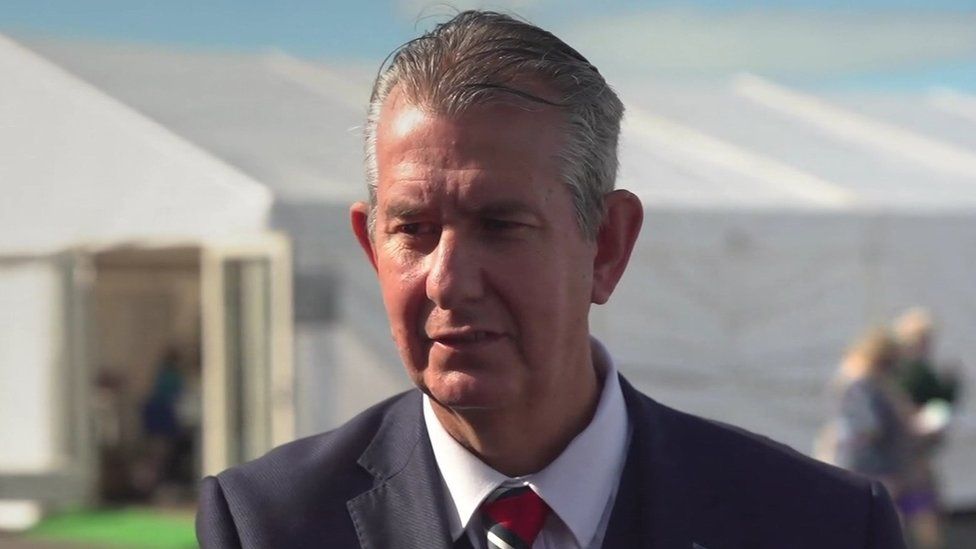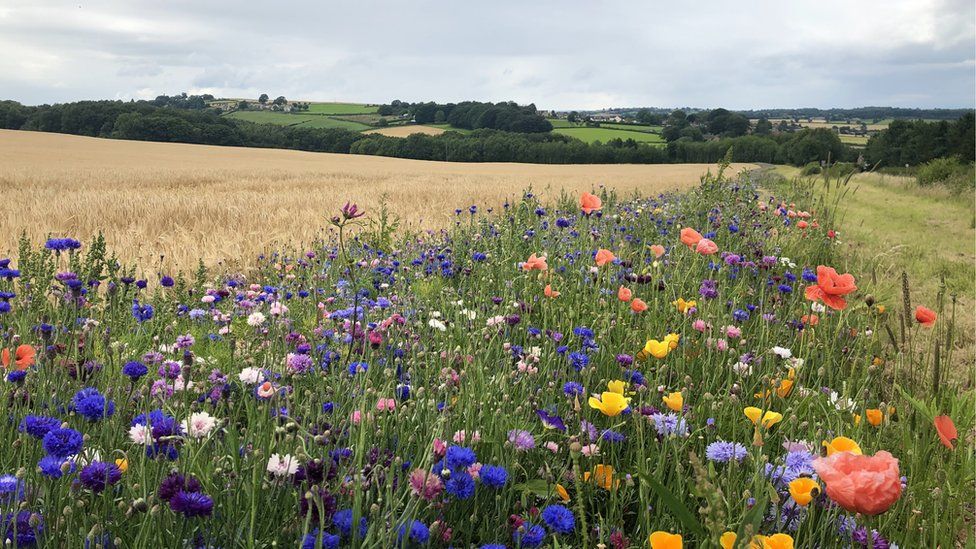Just over £300m will be paid out to farmers in Northern Ireland today, as the first of this year’s direct payments hit applicants’ bank accounts.
Direct payments are annual government subsidies paid to farmers to support the local agricultural industry and to help protect food supplies.
Payments rose by 6% this year, meaning farmers get, on average, an extra £800.
Agriculture Minister Edwin Poots said it was the largest amount ever paid out on the first day of the payment window.
“I am delighted to confirm that 98% of local farmers will be issued a total of £301m in direct payments on 18 October,” the minister said in a statement.
“As a result of exiting the EU, this is the second year the department has been able to issue payments in one go, which in turn has represented the largest amount ever issued by my department on the first day of payments.”
UK farmers used to receive subsidies from the European Union via the Common Agricultural Policy (CAP), but that financial support was replaced by funding from Westminster after the UK left the EU on 31 January 2020.
Mr Poots said the direct payments “represent the bulk of farm businesses’ annual income”.
“Maximising payments issued on day one improves the financial viability of these businesses and the wider rural economy,” he added.

Victor Chestnutt, the president of the Ulster Farmers’ Union (UFU), said that while the money is welcome, most farmers in Northern Ireland have probably already spent their share.
“It would be great just if you had that cheque to come in to be spent now, but you don’t,” Mr Chestnutt told the BBC’s Good Morning Ulster programme.
“The fact of the matter is, it’s in there to pay a lot of bills that are already out there.”
He said many farmers depend on the direct payments to cover their costs, such as fuel and fertiliser supplies.
Food prices
Direct payments are currently calculated based on the amount of land farmers use and how they use it, but that is likely to change as campaigners want to overhaul the subsidy system in order to provide greater incentives for environmentally-friendly farming practices.
The UFU president told the programme that farmers would accept change, but warned that the price of food may have to increase as a consequence.
“Quite simply, farmers can’t survive and produce that good, wholesome local food at what we get for it without some sort of support,” Mr Chestnutt explained.
“That support used to be tied to the numbers of livestock we kept. Then it was tied to the hectares of ground that we farmed in an environmental way.
“Now it’s going to be more targeted – you’re going to have to do things to justify it, which will be another change. But quite simply we cannot continue producing the food that everyone enjoys in Northern Ireland and indeed in the UK if we don’t get support.”
 IMAGE SOURCE,GETTY IMAGES/VICTORIA MARRIOTT
IMAGE SOURCE,GETTY IMAGES/VICTORIA MARRIOTTEnvironmental groups like the Royal Society for the Protection of Birds (RSPB) are among campaigners who want farmers to justify their subsidies by protecting the environment.
“We would like to see a future agricultural payment based on farmers having to do at least something – so every farmer should have to do at least something on their land,” said John Martin, the RSPB’s head of policy and advocacy in Northern Ireland.
He suggested planting trees and wildflowers and restoring peatland as ways in which farmers could contribute to improving the environment.
“There are lots of different options and we work with a lot of farmers… to provide advice for what is the best option for them on their farm, but we really need to see that scaled up across the entire countryside,” Mr Martin said.
Stormont’s Department of Agriculture, Environment and Rural Affairs (DAERA) is continuing to process a “small number of remaining applications” and payments will being released daily from Monday onwards.



No comments:
Post a Comment
Note: only a member of this blog may post a comment.